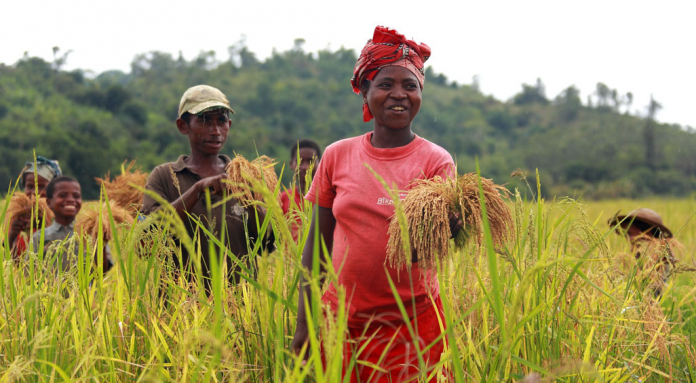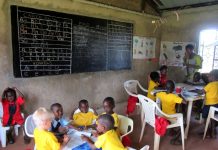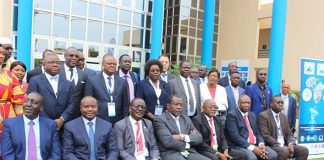The island nations of Africa, notably Seychelles, Madagascar and Equatorial Guinea are known to be publicity shy. They hardly move in tandem with the international programs going on in continental Africa. That explains why Madagascar’s new financial agreement with the International Fund for Agricultural Development, IFAD, is news worthy. The deal will sustainably improve incomes, food and nutrition security for over three hundred thousand Malagasy rural households in eight regions located in the southern part of the country.
The agreement for the Inclusive Agricultural Value Chains Development Program, DEFIS, was signed in Rome by the President of IFAD, Gilbert Houngbo, and the Minister for Agriculture and Livestock of Madagascar, Harrison Randri.
The total cost of the program is US$250 million, including a $26.5 million loan and $26.5 million grant from IFAD. The program will be jointly financed by the government of Madagascar ($33.7 million), the African Development Bank ($50 million), the OPEC Fund for International Development ($20 million), the Green Climate Fund ($15 million) and by the beneficiaries themselves ($14.3 million). A financing gap of $64 million could be covered by subsequent IFAD resource allocation processes or by other financial partners to be determined during the implementation of DEFIS. The program will be implemented over a period of 10 years in order to provide stable and predictable financing to producers.
In Madagascar, despite rich biodiversity and diverse agricultural products, 76 per cent of the people do not have the minimum dietary energy requirements of 2,133 kcals per day. The prevalence of chronic malnutrition among children under five years of age is among the highest in the world while the prevalence of poverty in rural areas is above 80 per cent. Limited investments in agriculture and in rural areas are among the chief causes of poverty and food and nutrition insecurity in Madagascar.
By supporting the national systems for agricultural development, DEFIS will contribute toward achieving the Sustainable Development Goals (SDGs) by scaling up successful country programs which have been financed by IFAD and its development partners in Madagascar.
This includes results obtained by concentrating investments in selected production hubs to facilitate agricultural services provision, products aggregation and access to market; strengthening and supporting farmers’ national institutions in charge of agricultural services provision; and promoting the establishment of partnerships and contractual arrangements between farmers and private sector firms.















